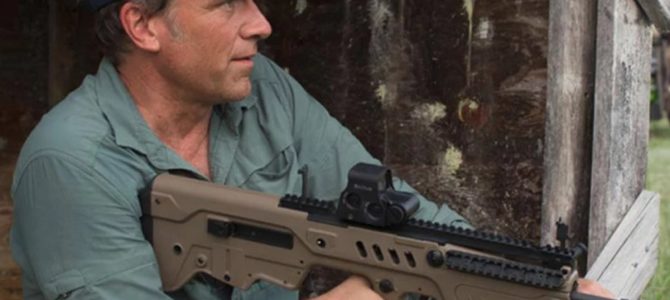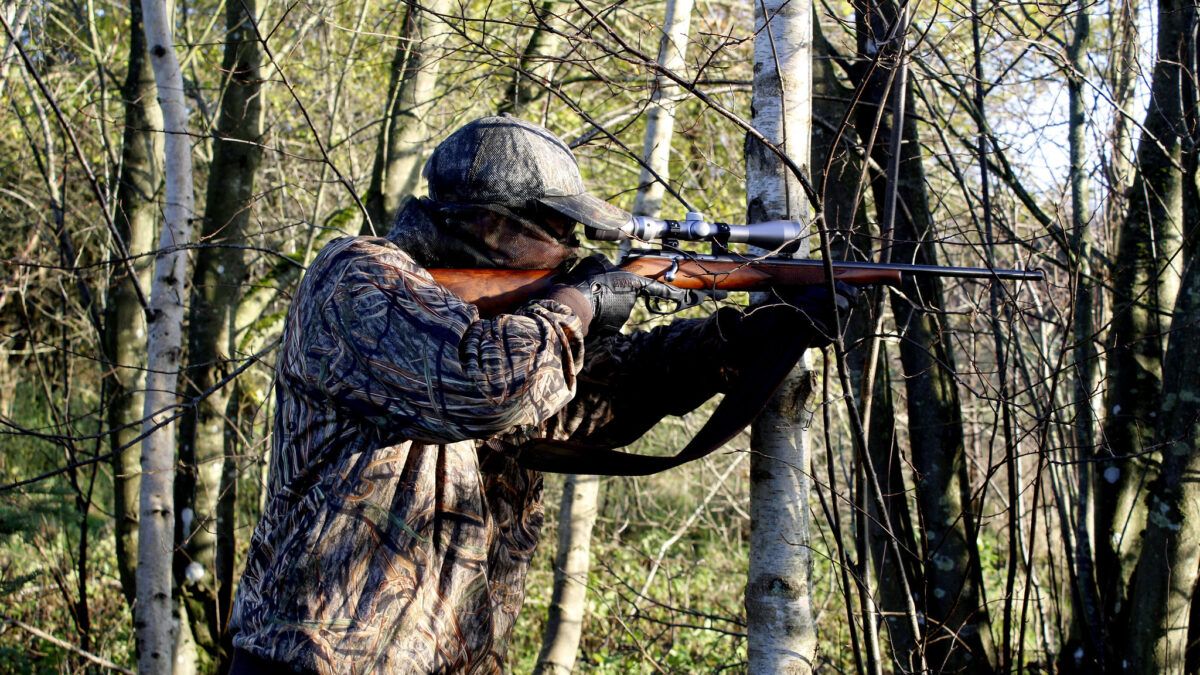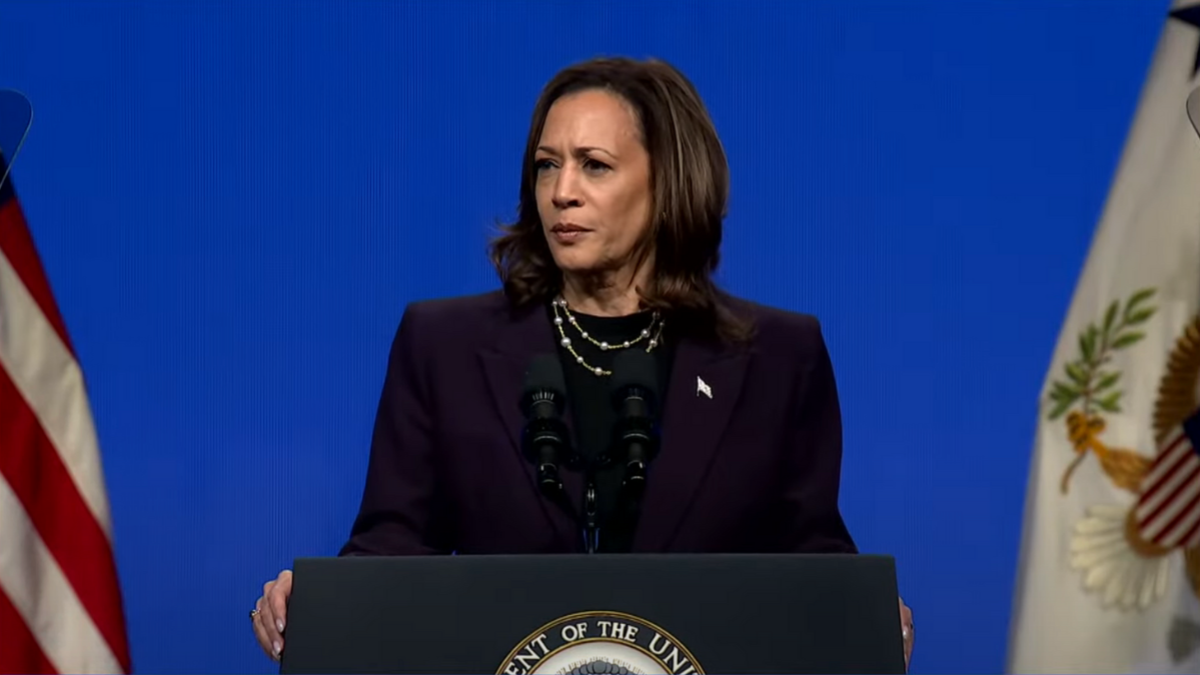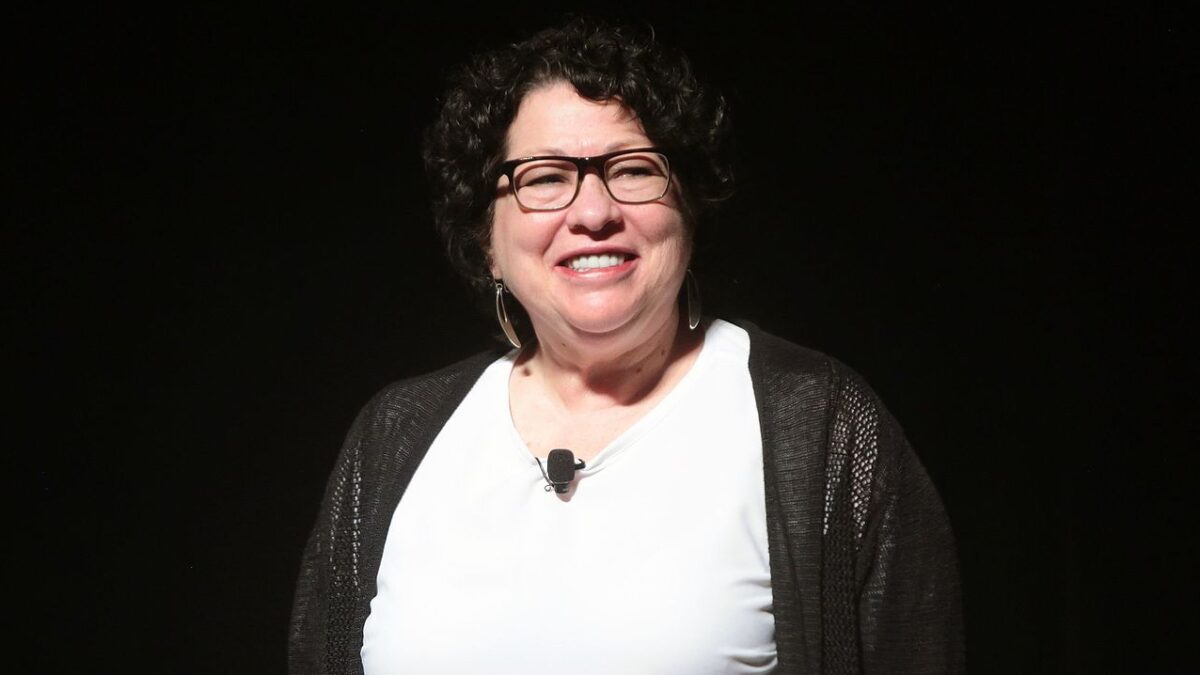LAS VEGAS, NEVADA–Using lessons he learned from his time hosting the show “Dirty Jobs,” popular TV personality Mike Rowe promoted common sense and personal responsibility at SHOT Show 2019, the nation’s largest annual gun industry convention. Organized by the National Shooting Sports Foundation (NSSF), SHOT Show attracts upwards of 60,000 people each year.
Rowe, who made a name for himself showcasing the work ethic of blue collar workers on the show “Dirty Jobs,” told the audience of three major lessons he learned from people he met on the show–lessons that all came from people who owned guns.
“So much of what matters most to me came from people who own firearms,” Rowe said.
The first lesson he noted, which he learned from a Nevada pig farmer who hunted to feed himself and used leftover Vegas casino buffet food to feed the pigs that he in turn used to feed the city, was that brown–not green– was the real color of conservation and planetary health, and the money needed to maintain it.
“Brown before green,” Rowe said. It is the dirt, the muck, the ground-up brown slop, that produces the greenery that denotes planetary health.
“Brown is best,” the pig farmer told Rowe. “Brown is fundamental. Green is symptomatic.”
This pig farmer, despite the fact that he was cleaning up the excesses of the city to feed the city, came under attack from various government agencies–the “army of angry acronyms” Rowe called them–at the urging of neighbors who didn’t like living near a pig farm that was there decades before they were.
Rowe’s message was that you don’t have to march with Al Gore or fly on fancy jets with Leonardo DiCaprio to be a conservationist. To be green, sometimes you have to be brown.
His next lesson, gleaned from crab boat captains he met as a narrator for the show “Deadliest Catch,” was a riff on moral hazard, a term economists use to describe how insurance increases the likelihood of the risky behavior it’s attempting to mitigate.
Rowe told the story of his one stint on a crab boat, in the middle of a raging, freezing storm capable of wiping out the boat and its entire crew. When he told the captain that maybe they should turn back, because safety comes first, the captain scoffed at him.
“Safety first? I’m the captain of a crab boat,” the captain, also a gun owner, told him. “My job is not to get you home safe. My job is to get you home rich.”
“If you want to get home safe, that’s on you,” the captain said.
His point? That when your safety becomes the priority of other people, it ceases to be your own responsibility, and the result is almost always less safety.
“Personal responsibility is your best defense against a potential calamity,” Rowe noted to a room full of gun owners who regularly exercise their Second Amendment rights to carry firearms for personal defense, a lesson they all knew instinctively.
His final lesson, learned from sheep farmers, was that sometimes experts don’t really know what they’re talking about. He learned this by watching sheep farmers castrate young lambs, but not in the way counseled by so-called animal humane experts.
When Rowe watched them castrate the animals using the method recommended by so-called experts, it was barbaric, as it caused several days’ worth of horrific pain for the animals. The preferred method of the farmers on his show, although revolting in appearance, was over in an instant and saved the animals from the lengthy pain of the method demanded by the experts.
“Be wary of experts,” he told the group. “Don’t dismiss them out of hand, but don’t always assume they know what they’re talking about.”
“A pig farmer might know more than an MBA. A farmer might know more about being kind to animals than a self-appointed expert.”
In recent years, Rowe has devoted significant time and attention to his non-profit mikeroweWORKS Foundation, which focuses on restoring appreciation for skilled trades and those who practice them. The centerpiece of mikeroweWORKS is its Work Ethic Scholarship Program, a scholarship that rewards tradesmen and tradeswomen who “demonstrate strong work ethic, a positive attitude, and personal responsibility,” according to the organization’s website.
Rowe is no stranger to gun rights battles, a topic near and dear to the hearts of those in the firearms industry. In 2016, he generated headlines when he nearly shot out of the sky a drone that was filming his home.
“Even though I didn’t pull the trigger and shoot the drone out of the sky…it was a great feeling to have the Mossberg 500 in my hands and looking up at a kind of intruder,” he told the Washington Times. “And I’m not comfortable giving that away.”
“[T]he NRA is not the reason that so many criminals and lunatics are able to buy guns today,” he wrote in a separate Facebook post.
As opposed to the annual National Rifle Association (NRA) convention, which attracts rank-and-file gun rights enthusiasts, SHOT Show is geared exclusively toward the gun industry rather than consumers. The centerpiece of SHOT Show is its massive 4-day manufacturer expo, which takes up the entirety of the massive Sands Expo Convention Center in Las Vegas, Nevada. The exhibitors spend days, if not weeks, setting up mobile sales floors in the convention hall to showcase their latest and greatest products to eager retail buyers and outfitters within the industry.
From guns, to scopes, to ammunition, to clothing, to metal coatings, to room-sized CNC machines, the entire supply chain of the firearms industry is represented at SHOT Show.
Rowe used the opportunity in front of a roomful of entrepreneurs, engineers, and machinists to extol the virtues of working and building with your hands, instead of pushing paper or spending all day in front of a screen.
“The country has a skills gap,” he said. “We have seven million jobs available that can’t be filled because people in this country no longer have the skills to do them.”
“We have lent over $1.5 trillion to kids who can’t pay it back so they can spend four years trying to get jobs that don’t exist.”
He concluded his remarks by thanking the NSSF members in attendance for all their work, which is on display through the end of the week.
“You guys are awesome,” he said. “Thank you for what you’re doing.”









